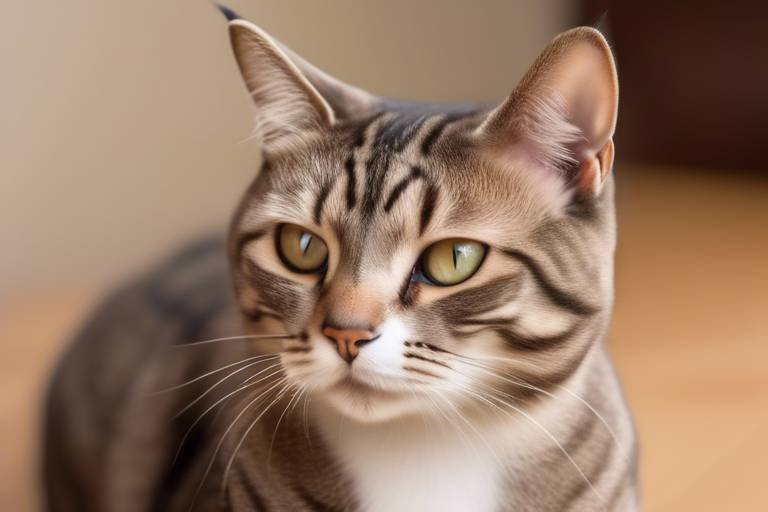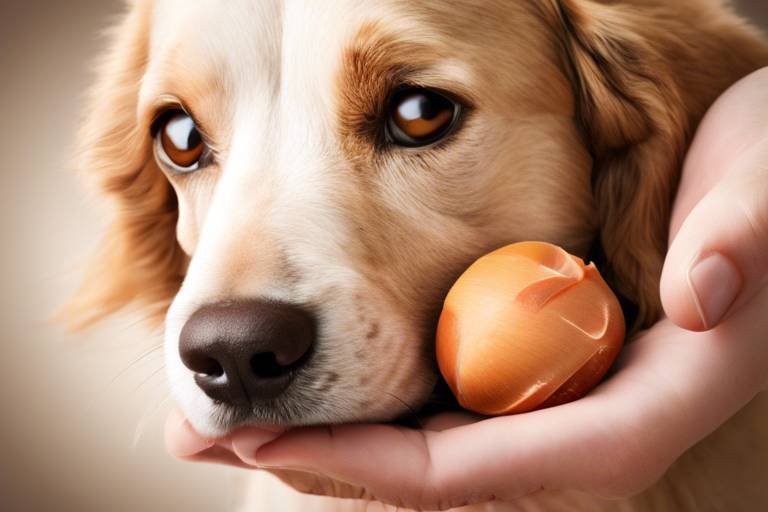How to Recognize and Manage Hyperthyroidism in Cats
This article explores the signs, symptoms, diagnosis, and treatment options for hyperthyroidism in cats, providing pet owners with essential information to ensure their feline friends receive proper care.
Hyperthyroidism is a common endocrine disorder in older cats. It occurs when the thyroid gland, located in the neck, produces an excess of thyroid hormones, which are crucial for regulating metabolism. Imagine your cat's metabolism revving up like a race car engine—everything speeds up, and that can lead to a host of health issues. The most frequent cause of hyperthyroidism in cats is a benign tumor on the thyroid gland, but it can also be related to other health problems. The condition can significantly impact a cat's overall health, leading to weight loss, increased appetite, and even changes in behavior. Understanding this condition is vital for any cat owner, especially if you have a senior feline companion.
Recognizing the symptoms of hyperthyroidism is crucial for early diagnosis. If you notice your cat acting differently, it might be time to pay attention. Here are some of the most prevalent signs that indicate a cat may be suffering from this condition:
Many cats with hyperthyroidism exhibit an unusual increase in appetite, often referred to as polyphagia. You might find your furry friend constantly begging for food or finishing their meals in record time. This symptom occurs because the excess thyroid hormones stimulate the cat's metabolism, leading to increased energy needs. However, despite eating more, these cats often do not gain weight, which is a puzzling yet concerning aspect of this disorder.
Despite eating more, cats may lose weight due to hyperthyroidism. This paradox can be alarming for pet owners. The underlying reason for this weight loss is that the cat's body is burning calories at an accelerated rate. Think of it like a furnace that’s burning fuel faster than it can be replenished. If your cat seems to be shrinking while their food bowl seems to be emptying faster than ever, it's time to consult a veterinarian. Weight loss can lead to further complications, including muscle wasting and a weakened immune system, making it essential to address this issue promptly.
Hyperactivity is another common symptom of hyperthyroidism. Cats may seem to have an endless supply of energy, darting around the house, climbing to new heights, and engaging in behaviors that might leave you scratching your head. This increased energy level can affect a cat's behavior and daily life, leading to restlessness and even aggression in some cases. If your once-cuddly kitty is now a whirlwind of activity, it could be a sign that something is amiss.
Diagnosing hyperthyroidism involves specific tests and examinations. Your veterinarian will likely start with a thorough physical examination and a review of your cat's medical history. Blood tests are crucial for confirming the diagnosis, as they measure the levels of thyroid hormones in the bloodstream. Sometimes, additional tests may be required to assess the severity of the condition or to rule out other potential health issues. Early diagnosis is key to managing this condition effectively.
There are several effective treatment options available for hyperthyroidism in cats. Each cat is unique, and the best approach will depend on your cat's specific situation, age, and overall health. Here’s a brief overview of the most common treatment methods:
Medications are often the first line of treatment for hyperthyroidism. These drugs work by inhibiting the production of thyroid hormones, helping to stabilize your cat's metabolism. Common medications include methimazole and carbimazole. While these medications can be effective, they may have potential side effects, including vomiting, loss of appetite, and lethargy. Regular monitoring by your veterinarian is essential to ensure that your cat is responding well to the treatment.
In some cases, surgery may be necessary to treat hyperthyroidism. This typically involves the removal of the affected thyroid gland. Surgical procedures can be highly effective, but they do come with risks, especially for older cats. Your veterinarian will discuss whether surgery is a viable option based on your cat’s health and the severity of their condition.
Managing a cat’s health with hyperthyroidism requires ongoing care and monitoring. Regular veterinary check-ups are crucial to track your cat's thyroid levels and overall health. Here are some tips for pet owners on how to support their cats through treatment:
- Maintain a consistent feeding schedule to help manage their appetite.
- Monitor their weight regularly and keep a record of any changes.
- Provide a calm environment to help reduce stress.
- Stay informed about their condition and treatment options.
With proper care and attention, cats with hyperthyroidism can lead happy, fulfilling lives.
Q: Can hyperthyroidism be cured?
A: While hyperthyroidism can be effectively managed, it is typically considered a lifelong condition. Treatments can help control the symptoms and improve your cat's quality of life.
Q: Is hyperthyroidism common in all cats?
A: Hyperthyroidism is most commonly seen in older cats, particularly those over the age of 10. It is less common in younger cats.
Q: What should I do if I suspect my cat has hyperthyroidism?
A: If you notice any symptoms such as increased appetite, weight loss, or hyperactivity, it is essential to consult your veterinarian for a proper diagnosis and treatment plan.
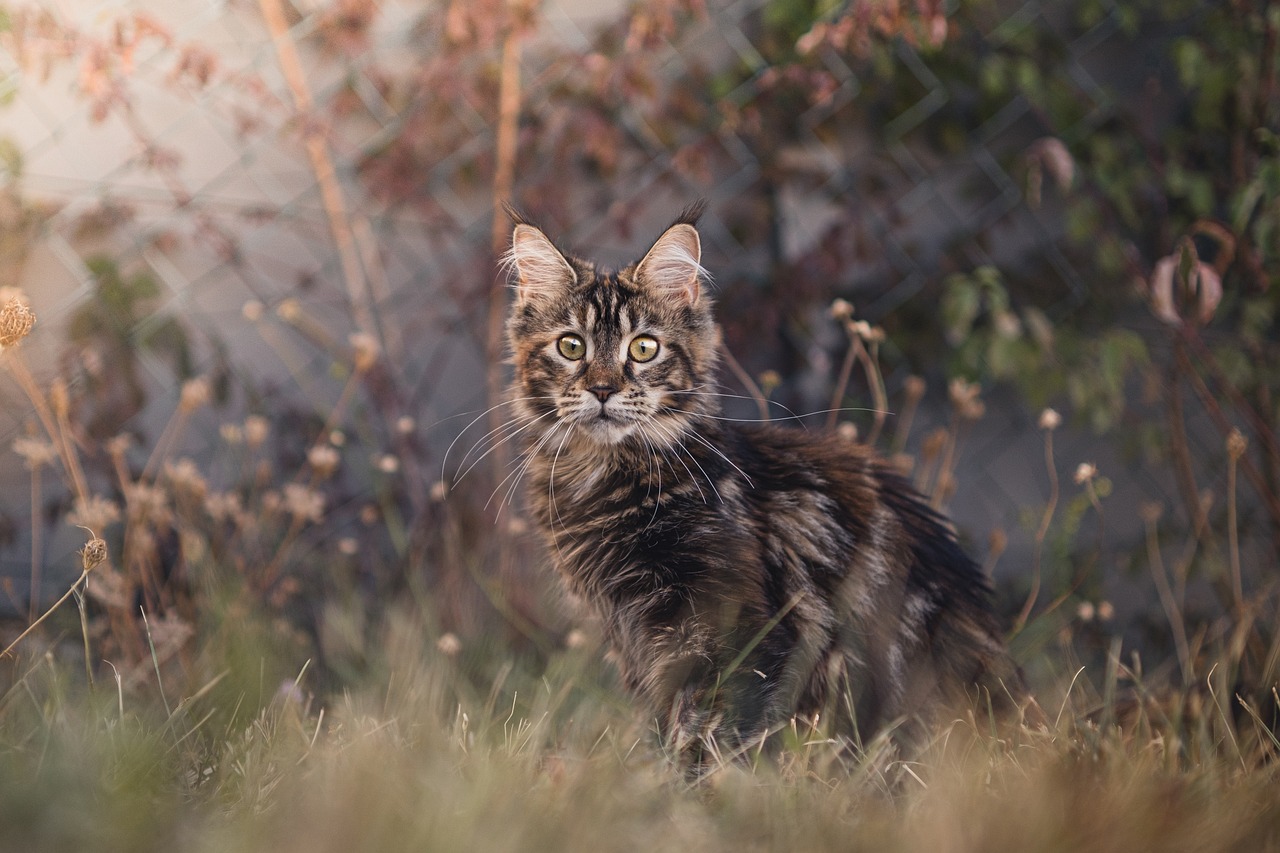
Understanding Hyperthyroidism
Hyperthyroidism is a common endocrine disorder that primarily affects older cats, typically those aged ten years and above. This condition arises when the thyroid gland, located in the neck, becomes overactive and produces an excess of thyroid hormones, namely thyroxine (T4). But what does this mean for your feline friend? Well, think of the thyroid as the body's engine. When it revs too high, everything speeds up, leading to a cascade of changes in your cat's metabolism and overall health.
The most common cause of hyperthyroidism in cats is the development of benign tumors on the thyroid gland, known as adenomas. These tumors can disrupt the normal regulation of hormone production, causing the gland to produce more hormones than the body requires. In some rare cases, hyperthyroidism may be linked to thyroid cancer. Understanding these causes can help pet owners grasp why hyperthyroidism is not just a minor issue but a serious health concern that requires attention.
As the thyroid hormones surge, they trigger a series of physiological changes. For instance, they can increase your cat's metabolic rate, which means that the body burns energy faster than usual. This can lead to noticeable symptoms such as weight loss despite increased appetite, hyperactivity, and even changes in behavior. Imagine a car that suddenly accelerates without you pressing the gas pedal—this is what happens to a cat's body under the influence of excess thyroid hormones.
Moreover, the effects of hyperthyroidism can extend beyond just weight and energy levels. It can also impact other organs, particularly the heart. Cats with this condition may develop an increased heart rate or even heart disease due to the excessive strain placed on their cardiovascular system. Therefore, it’s crucial for pet owners to recognize that hyperthyroidism is not merely about weight loss or increased appetite; it’s a multifaceted disorder that can significantly affect your cat's quality of life.
In terms of diagnosis, veterinarians often rely on blood tests to measure the levels of thyroid hormones in your cat's system. If you suspect that your cat might be suffering from hyperthyroidism, a visit to the vet is essential. Early diagnosis can lead to better management of the condition and improve your cat’s overall health and longevity.
In summary, understanding hyperthyroidism is the first step in ensuring that your cat receives the care it needs. By being aware of the causes, symptoms, and potential impacts of this disorder, you can take proactive measures to safeguard your feline companion's health and well-being.
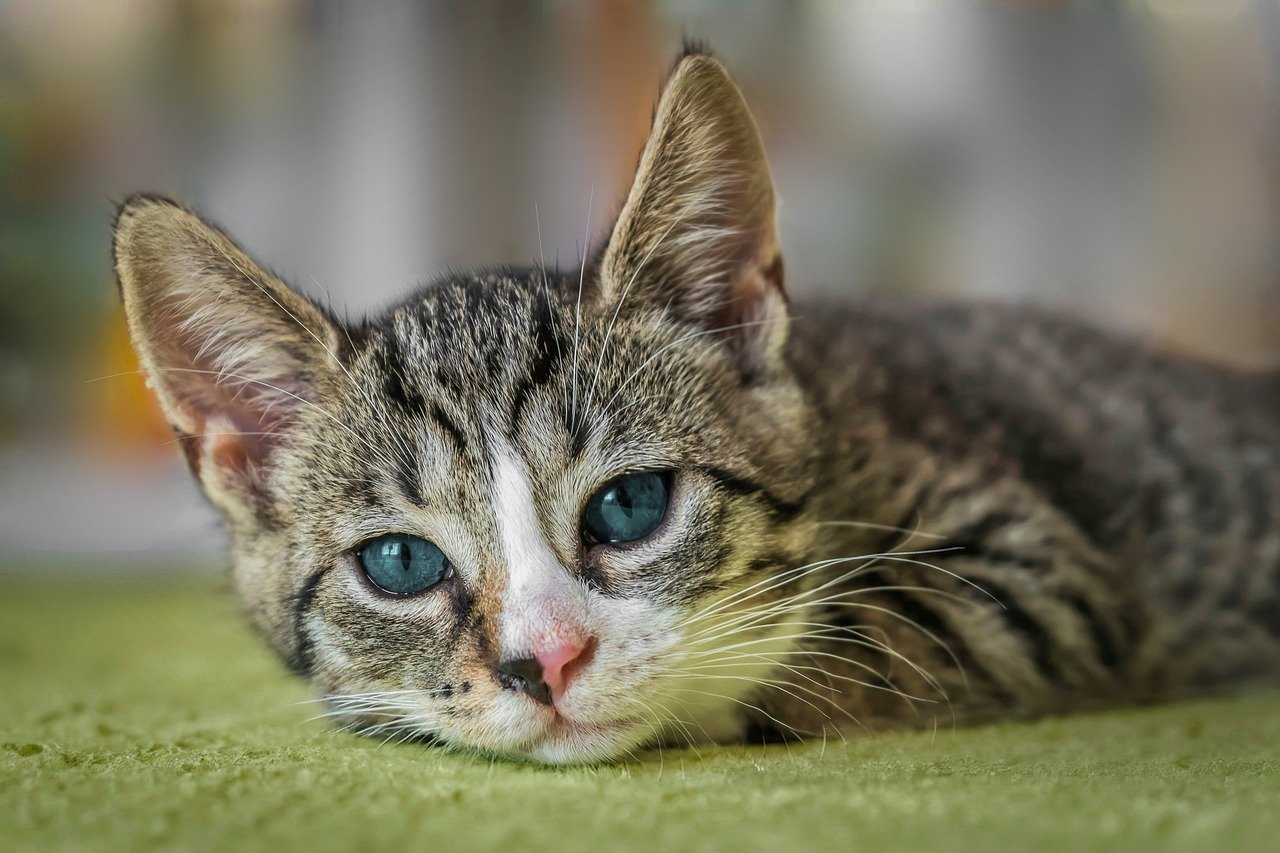
Common Symptoms
Recognizing the symptoms of hyperthyroidism in cats is crucial for early diagnosis and effective treatment. As a pet owner, you might notice some changes in your feline friend's behavior or physical condition that can indicate this serious health issue. Hyperthyroidism can sneak up on you, and by the time you realize something is wrong, it may have progressed. So, what should you be looking out for? Here are some of the most common symptoms to keep an eye on:
One of the hallmark signs of hyperthyroidism is an unusual increase in appetite. You might find your cat constantly begging for food or raiding the pantry like a little furry burglar! This insatiable hunger occurs because the condition speeds up the cat's metabolism, making them feel like they need to eat more to keep up with their body's demands. However, this increased appetite can be misleading, as it often coexists with other symptoms.
Despite their newfound love for food, many cats with hyperthyroidism experience significant weight loss. It’s like watching a balloon slowly deflate; they might be eating more, but their bodies are burning through calories at an alarming rate. This weight loss can be alarming and is a clear indicator that something is amiss. If you notice your cat looking skinnier or feeling bony when you pet them, it’s essential to consult a veterinarian as soon as possible.
Hyperactivity is another common symptom that can manifest in your cat's behavior. You may notice them zooming around the house like they’ve had one too many catnip lattes! This increased energy level is a result of their heightened metabolism and can lead to restless nights for both you and your cat. While some cats are naturally more energetic, a sudden change in activity levels warrants a closer look.
In addition to these primary symptoms, there are a few other signs that may accompany hyperthyroidism, such as:
- Increased thirst and urination
- Vomiting or diarrhea
- Poor coat condition, often appearing unkempt or greasy
- Behavioral changes, such as irritability or aggression
If you notice any of these symptoms in your cat, it’s essential to act quickly. Early intervention can make a significant difference in your cat's health and quality of life. Remember, your feline friend relies on you to recognize when something is off. Keeping a close eye on their behavior and physical condition can help ensure they receive the care they need.
Q: Can hyperthyroidism be cured?
A: While hyperthyroidism can be managed effectively with treatment, it is generally considered a lifelong condition. Regular veterinary check-ups and adherence to treatment plans can help maintain your cat's quality of life.
Q: Is hyperthyroidism common in all cats?
A: Hyperthyroidism is most commonly found in older cats, typically those over 10 years of age. However, it can occur in younger cats, albeit rarely.
Q: What should I do if I suspect my cat has hyperthyroidism?
A: If you notice any of the symptoms mentioned, it’s crucial to schedule an appointment with your veterinarian for a thorough examination and diagnostic testing.
Increased Appetite
One of the most noticeable signs of hyperthyroidism in cats is an unusual increase in appetite. You might find your feline friend suddenly devouring their food like they haven't eaten in days, which can be quite puzzling for pet owners. You might think, "Isn't it great that my cat is hungry?" But hold on a second! This increased appetite, known as polyphagia, is often a red flag indicating that something is off with your cat's health.
So, why does this happen? Hyperthyroidism stimulates the cat's metabolism, causing them to burn through energy at an alarming rate. Imagine a car racing on an empty tank; it needs fuel constantly to keep going. In the case of hyperthyroid cats, their bodies are in overdrive, leading to a constant craving for food. This can create a vicious cycle where the cat eats more but still feels unsatisfied, leading to even more eating.
It’s essential to monitor your cat's eating habits closely. If you notice an increase in appetite accompanied by other symptoms, it’s time to consult your veterinarian. Here are a few things to keep in mind:
- Monitor Portion Sizes: If your cat is eating more than usual, ensure that you’re not overfeeding them. Sometimes, what seems like an increased appetite could be a result of a change in feeding schedule or food type.
- Look for Other Symptoms: Increased appetite alone isn’t enough to diagnose hyperthyroidism. Keep an eye out for other signs such as weight loss, increased thirst, and hyperactivity.
- Consult Your Vet: If your cat's eating habits change drastically, it's always best to seek professional advice. Early diagnosis can make a significant difference in managing the condition.
Understanding the reasons behind your cat's increased appetite can help you take the right steps towards ensuring their health. Remember, while it may seem like your cat is thriving with their newfound love for food, it’s crucial to recognize that this behavior could be a symptom of a more serious underlying issue. So, don’t ignore the signs; keep a close watch on your furry friend!
Weight Loss
One of the most perplexing aspects of hyperthyroidism in cats is the phenomenon of , which often occurs despite an increased appetite. You might be scratching your head, thinking, "How can my cat be ravenous yet lose weight?" It’s a bit like watching someone devour a feast but still look like they haven’t eaten in days. This paradox is primarily due to the way hyperthyroidism affects a cat's metabolism.
Hyperthyroidism leads to an overproduction of thyroid hormones, which play a critical role in regulating metabolism. When these hormones are in overdrive, a cat's body burns through calories at an alarming rate, leading to weight loss even when they seem to be eating more than usual. This condition can result in a cat using its fat and muscle reserves for energy, which is why you may notice your feline friend becoming increasingly thin.
To put it simply, imagine your cat's body as a car engine. Normally, the engine runs smoothly, using fuel (calories) efficiently. However, when hyperthyroidism kicks in, it’s like putting the pedal to the metal and revving the engine without a break. The cat's body is working overtime, consuming energy faster than it can replenish it through food intake.
This unintended weight loss can have serious implications for your cat's overall health. It can lead to muscle wasting, weakness, and a general decline in vitality, which is concerning for any pet owner. If you start noticing that your cat is losing weight despite eating well, it’s crucial to consult your veterinarian as soon as possible. Early diagnosis and intervention can make a significant difference in managing the condition and ensuring your furry friend stays healthy.
Here are some signs to watch for that might accompany weight loss in hyperthyroid cats:
- Increased thirst: Your cat may seem to drink water more frequently.
- Frequent urination: An uptick in bathroom visits can also occur.
- Changes in behavior: Look for signs of restlessness or irritability.
In conclusion, if your cat is experiencing weight loss alongside other symptoms of hyperthyroidism, it’s essential to address this with a veterinarian promptly. Understanding the underlying causes of this weight loss is key to ensuring your beloved pet receives the care they need to thrive.
Q: Can hyperthyroidism be cured in cats?
A: While hyperthyroidism can be effectively managed with treatment, it is typically considered a lifelong condition. Medications, dietary changes, or surgery may help control the symptoms and improve your cat's quality of life.
Q: What age do cats typically develop hyperthyroidism?
A: Hyperthyroidism is most commonly diagnosed in middle-aged to older cats, usually around 10 years of age or older.
Q: Are there any specific breeds more prone to hyperthyroidism?
A: While hyperthyroidism can affect any breed, studies suggest that domestic cats, particularly those that are older, are more likely to develop the condition.
Q: How can I help my cat manage hyperthyroidism at home?
A: Regular veterinary check-ups, a balanced diet, and monitoring your cat's weight and behavior are crucial in managing hyperthyroidism effectively.
Hyperactivity
Hyperactivity in cats can be a startling symptom of hyperthyroidism, and it’s often one of the first signs that pet owners notice. Imagine your once calm, cuddly feline suddenly transforming into a whirlwind of energy, darting around the house, and climbing every piece of furniture in sight. This increased energy level is not just a quirky personality change; it’s a direct result of the body’s metabolism being thrown into overdrive due to excess thyroid hormones. When a cat has hyperthyroidism, their body is essentially operating on high alert, leading to this seemingly boundless energy.
But what does this hyperactivity look like in practice? You might observe your cat engaging in behaviors such as:
- Chasing after imaginary prey
- Excessive vocalization
- Constantly seeking attention
- Restlessness, even during typical downtime
This surge in activity can be perplexing and even concerning for pet owners. You might find yourself asking, “Is my cat just being playful, or is something wrong?” It’s important to recognize that while playfulness is normal, the intensity and frequency of these hyperactive episodes can be a red flag. Often, this behavior can lead to accidents or injuries, especially if your cat is leaping onto high surfaces or engaging in rough play with other pets.
Furthermore, hyperactivity can disrupt your cat’s sleep patterns. Cats are naturally inclined to nap throughout the day, but hyperthyroidism can lead to bouts of insomnia, making your once peaceful home feel like a feline circus. This lack of restful sleep can further exacerbate the cat's hyperactive tendencies, creating a vicious cycle that can be challenging to break.
As a responsible pet owner, it’s crucial to monitor these changes in behavior closely. If you notice that your cat is displaying an unusual level of hyperactivity, combined with other symptoms like increased appetite or weight loss, it’s time to consult with your veterinarian. Early detection and intervention can significantly improve your cat's quality of life and help manage the condition effectively.
In conclusion, while hyperactivity can be seen as a fun quirk in a cat’s personality, it can also be a sign of underlying health issues like hyperthyroidism. By paying attention to these behavioral changes and seeking veterinary advice, you can ensure that your furry friend stays happy and healthy.
- What causes hyperactivity in cats? Hyperactivity in cats can be caused by various factors, including hyperthyroidism, environmental changes, or even boredom. It's essential to observe your cat's behavior and consult a vet if concerns arise.
- How can I help my hyperactive cat? Providing plenty of interactive toys, scheduled playtime, and environmental enrichment can help channel your cat's energy positively. However, if hyperactivity persists, a vet visit is recommended.
- Is hyperactivity a sign of hyperthyroidism in all cats? Not all hyperactive cats have hyperthyroidism, but it is a common symptom. Other health issues could also lead to increased energy levels, so a thorough examination is essential for an accurate diagnosis.
Diagnosing Hyperthyroidism
Diagnosing hyperthyroidism in cats is a crucial step in ensuring that your feline friend receives the appropriate care and treatment. The process typically begins with a thorough physical examination by a veterinarian, who will assess your cat's overall health and look for any visible symptoms associated with hyperthyroidism. These symptoms may include weight loss, increased appetite, or excessive grooming. But wait, there's more! The vet will also ask you a series of questions about your cat's behavior and eating habits to gather more context.
Once the initial examination is complete, the veterinarian may recommend specific tests to confirm the diagnosis. The most common test is a blood test that measures the levels of thyroid hormones, particularly thyroxine (T4). Elevated levels of T4 in the blood are a strong indicator of hyperthyroidism. If the results show high T4 levels, your vet may suggest additional tests to rule out other conditions that could mimic hyperthyroidism, such as kidney disease or diabetes. This step is essential because it helps to ensure that your cat receives the right diagnosis and treatment plan.
In some cases, your vet might also perform a urinalysis or an ultrasound of the thyroid glands to gather more information. An ultrasound can help determine if there are any tumors or abnormalities present in the thyroid glands. These diagnostic tools are vital, as they allow for a comprehensive understanding of your cat's health and help in formulating an effective treatment strategy.
It's worth noting that diagnosing hyperthyroidism can sometimes be a bit tricky, especially in older cats who may have multiple health issues. Therefore, if you're noticing any signs of hyperthyroidism, it's important to consult your veterinarian as soon as possible. Early diagnosis can significantly improve your cat's quality of life and overall prognosis.
- What are the main symptoms of hyperthyroidism in cats? The main symptoms include increased appetite, weight loss, hyperactivity, and excessive grooming.
- How is hyperthyroidism diagnosed? Diagnosis typically involves a physical exam, blood tests for thyroid hormone levels, and possibly imaging tests like ultrasounds.
- What are the treatment options for hyperthyroidism? Treatment options include medication, dietary changes, and surgical intervention.
- Can hyperthyroidism be cured? While it can often be managed effectively, hyperthyroidism in cats is generally considered a lifelong condition that requires ongoing care.
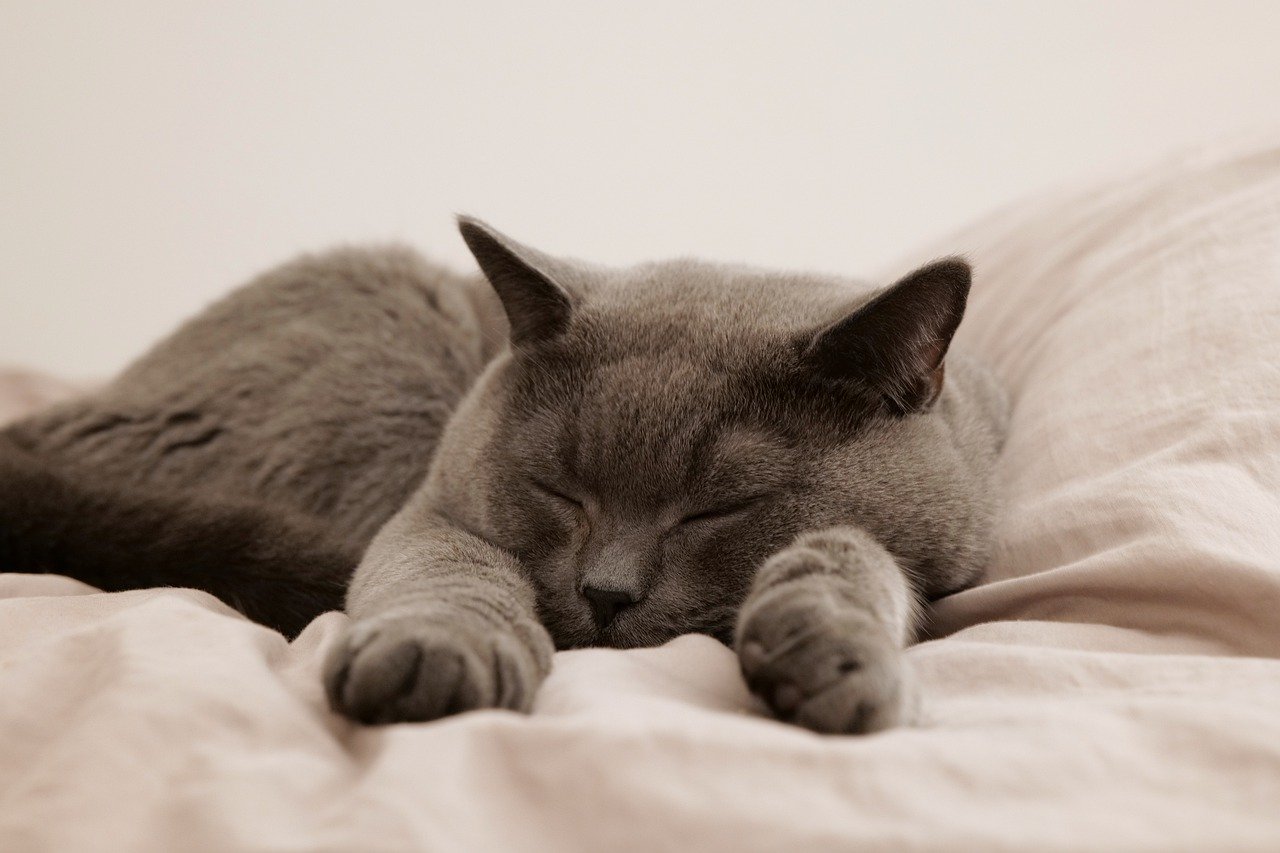
Treatment Options
When it comes to treating hyperthyroidism in cats, pet owners have a variety of options to consider. The choice of treatment often depends on the cat's age, overall health, and the severity of the condition. It's crucial to consult with a veterinarian to determine the most suitable approach for your furry friend. Let's explore the primary treatment options available, each with its own set of benefits and considerations.
One of the most common treatments for hyperthyroidism is medication. These medications work by reducing the production of thyroid hormones, which helps to alleviate the symptoms associated with the condition. The most frequently prescribed medication is methimazole, which is effective in managing hyperthyroidism. However, like any medication, it can have side effects, including vomiting, loss of appetite, and lethargy. Regular monitoring of your cat's health is essential to ensure that the medication is working effectively and to adjust dosages as needed.
In addition to medication, some pet owners may opt for a radioactive iodine treatment. This method involves administering a small, targeted dose of radioactive iodine that selectively destroys the overactive thyroid tissue. This treatment is highly effective and can lead to a permanent resolution of hyperthyroidism in many cases. However, it requires a specialized facility and typically involves a short hospitalization period for the cat. The cost may also be higher compared to other treatment options, but the long-term benefits often outweigh the initial investment.
Another option available is surgical intervention, which involves the surgical removal of the thyroid gland. This approach is generally recommended for younger cats or those with a single thyroid tumor. While surgery can be very effective, it does come with risks, including anesthesia complications and potential damage to surrounding structures. It's vital to discuss these risks with your veterinarian to make an informed decision.
Additionally, dietary management can play a role in treating hyperthyroidism. There are specialized diets available that are low in iodine, which can help manage the condition by limiting the substrate needed for thyroid hormone production. This option is particularly useful for cats that may not tolerate medication well. However, it's essential to ensure that the diet is nutritionally complete and suitable for your cat's overall health.
In summary, the treatment options for hyperthyroidism in cats are diverse, ranging from medications to surgical interventions and dietary management. Each method has its own advantages and potential drawbacks, so it's crucial to work closely with your veterinarian to develop a tailored treatment plan that best fits your cat's unique needs.
As a pet owner, you may have several questions about hyperthyroidism and its treatment. Here are some frequently asked questions to help you understand the condition better:
- What causes hyperthyroidism in cats? Hyperthyroidism is primarily caused by an increase in thyroid hormone production, often due to benign tumors on the thyroid gland.
- Can hyperthyroidism be cured? While hyperthyroidism can be managed effectively, treatment options such as radioactive iodine can lead to a permanent cure in many cases.
- How can I monitor my cat's health during treatment? Regular veterinary check-ups, blood tests, and observing your cat's behavior and appetite are crucial for monitoring health during treatment.
- Are there any home care tips for managing a cat with hyperthyroidism? Ensure your cat has a stress-free environment, provide a balanced diet, and maintain regular vet visits to monitor their condition.
Medications
When it comes to treating hyperthyroidism in cats, are often the first line of defense. These drugs work by reducing the production of thyroid hormones, which can help alleviate the symptoms associated with this condition. The most commonly prescribed medications include methimazole and carbimazole. Both of these medications are effective in managing hyperthyroidism, but they operate in slightly different ways. Methimazole, for instance, inhibits the enzyme that catalyzes the production of thyroid hormones, while carbimazole is a prodrug that converts to methimazole in the body.
It's essential to understand that while medications can effectively manage hyperthyroidism, they are not a cure. Regular monitoring through blood tests is crucial to ensure that the medication dosage is appropriate and to check for any potential side effects. Some common side effects of these medications may include:
- Vomiting
- Loss of appetite
- Fatigue
- Skin rashes
If you notice any of these symptoms in your cat after starting medication, it's important to consult your veterinarian promptly. They may adjust the dosage or switch to a different medication that your cat tolerates better.
Another aspect to consider is the method of administration. Many pet owners find it challenging to give their cats oral medications. If your cat is particularly resistant, your veterinarian may suggest alternatives such as topical gels that can be applied to the ear. This method can be less stressful for both the cat and the owner, as it avoids the struggle of trying to get a pill down a reluctant feline.
To help you better understand the options available, here's a quick comparison of the two most commonly used medications:
| Medication | Mechanism of Action | Common Side Effects |
|---|---|---|
| Methimazole | Inhibits thyroid hormone production | Vomiting, loss of appetite, fatigue |
| Carbimazole | Converted to methimazole in the body | Similar to methimazole |
Ultimately, the goal of medication is to stabilize your cat's thyroid levels, allowing them to lead a more comfortable and healthy life. Regular follow-ups with your veterinarian will help ensure that your cat's treatment plan is effective and that any adjustments can be made as needed.
As you navigate the world of hyperthyroidism in cats, you may have some questions. Here are a few frequently asked questions that might help clarify things:
- How long will my cat need to be on medication? The duration of medication can vary; some cats may need lifelong treatment while others may stabilize and require less intervention.
- Can hyperthyroidism in cats be cured? While medications can manage the symptoms effectively, they do not cure the condition. Surgical options or radioactive iodine treatment may offer a more permanent solution.
- What should I do if my cat refuses to take medication? Consult your veterinarian for alternative administration methods or formulations that may be easier to give.
Surgical Options
When it comes to treating hyperthyroidism in cats, surgery can be a vital option, especially in cases where medication and diet changes are not effective. The primary surgical procedure for hyperthyroidism is called a thyroidectomy, which involves the removal of the overactive thyroid gland. This procedure is generally recommended for cats that are younger, healthy, and do not have any other significant health issues. The idea behind this surgery is simple yet effective: by removing the source of the excess thyroid hormone, we can restore the cat's metabolism to a normal state.
During the surgery, the veterinarian will carefully remove one or both of the thyroid glands, which are located near the trachea in the neck. This operation is typically performed under general anesthesia, ensuring that your cat is completely unconscious and pain-free throughout the process. While surgery can be a bit intimidating for pet owners, it's important to remember that it has a high success rate and can lead to a significant improvement in your cat's quality of life.
However, as with any surgical procedure, there are risks involved. Some potential complications include:
- Hypoparathyroidism: This occurs if the parathyroid glands, which regulate calcium levels, are accidentally damaged during surgery.
- Infection: Like any surgery, there is a risk of infection at the incision site.
- Anesthesia Risks: Some cats may have adverse reactions to anesthesia, especially if they have pre-existing health issues.
Post-operative care is also crucial. After the surgery, your cat may need to stay at the veterinary clinic for a day or two for monitoring. Once home, it’s essential to follow your veterinarian's instructions regarding medication, diet, and activity levels. Most cats can return to their normal activities within a couple of weeks, but it's always best to check in with your vet for personalized advice.
In conclusion, while surgical options for managing hyperthyroidism in cats can be highly effective, they require careful consideration and consultation with your veterinarian. Each cat is unique, and what works for one may not be suitable for another. Always weigh the benefits against the risks and have an open discussion with your vet about the best course of action for your furry friend.
1. What are the signs that my cat may need surgery for hyperthyroidism?
If your cat is not responding to medication or dietary changes, or if they have severe symptoms affecting their quality of life, surgery may be recommended.
2. How long is the recovery time after surgery?
Most cats recover within 1 to 2 weeks, but full recovery can take longer, depending on the individual cat's health and age.
3. Will my cat need to take medication after surgery?
In many cases, cats do not need to continue medication after a successful thyroidectomy, but follow-up care is essential to monitor their health.
4. Are there any long-term effects of the surgery?
Most cats do not experience long-term effects, but there is a small risk of developing hypoparathyroidism, which can be managed with medication.

Managing Your Cat's Health
Managing a cat’s health with hyperthyroidism is not just about following a treatment plan; it’s about creating a supportive environment that fosters their overall well-being. Just like humans, cats thrive when they feel secure and loved, especially when dealing with a chronic condition. So, what can you do to ensure your feline friend remains happy and healthy? Let’s dive into some essential strategies!
First and foremost, regular veterinary check-ups are crucial. These visits allow your vet to monitor the progress of your cat's treatment and make any necessary adjustments. Think of it as a health tune-up—just like how we need to check our cars to keep them running smoothly. During these visits, your veterinarian may perform blood tests to monitor thyroid hormone levels and assess kidney function, which can sometimes be affected by hyperthyroidism.
In addition to medical care, diet plays a significant role in managing hyperthyroidism. Many veterinarians recommend a special diet that is low in iodine, as this can help control the production of thyroid hormones. It’s essential to consult your vet before making any dietary changes, as they can guide you on the best options tailored to your cat’s specific needs. Just imagine swapping out your favorite snacks for healthier alternatives—it might be a bit of a struggle at first, but it’s worth it in the long run!
Moreover, creating a stress-free environment can greatly benefit your cat’s health. Cats are creatures of habit, and disruptions can lead to anxiety, which may exacerbate their condition. Consider setting up a cozy space where your cat can retreat when they need some alone time. This could be a quiet room with their favorite blankets or a sunny spot by the window. Remember, a calm cat is a happy cat!
It’s also important to engage your cat in regular play and exercise. While hyperactivity is a symptom of hyperthyroidism, it’s essential to channel that energy into constructive activities. Interactive toys, feather wands, or even simple cardboard boxes can provide hours of entertainment. Not only does this help to keep their weight in check, but it also strengthens the bond between you and your furry companion.
Lastly, keep an eye on your cat’s behavior and any changes in their habits. If you notice anything unusual, such as increased thirst or changes in litter box usage, don’t hesitate to reach out to your veterinarian. Early intervention can make a world of difference in managing hyperthyroidism effectively.
- What is hyperthyroidism in cats? Hyperthyroidism is a common endocrine disorder in older cats, characterized by an overproduction of thyroid hormones, which can lead to various health issues.
- How is hyperthyroidism diagnosed? Diagnosis typically involves blood tests to measure thyroid hormone levels, along with a physical examination by a veterinarian.
- What are the treatment options for hyperthyroidism? Treatment options include medication, dietary changes, and surgical procedures, depending on the severity of the condition.
- Can hyperthyroidism be cured? While hyperthyroidism can be managed effectively, it is generally considered a chronic condition that requires ongoing care.
- How can I support my cat during treatment? Regular vet visits, a proper diet, a stress-free environment, and engaging playtime can all help support your cat’s health during treatment.
Frequently Asked Questions
-
What is hyperthyroidism in cats?
Hyperthyroidism is an endocrine disorder commonly found in older cats. It occurs when the thyroid gland produces excessive amounts of thyroid hormones, leading to an increased metabolism and various health issues.
-
What are the common symptoms of hyperthyroidism in cats?
Common symptoms include increased appetite, weight loss, hyperactivity, excessive thirst, and changes in behavior. If you notice any of these signs, it’s essential to consult your veterinarian for further evaluation.
-
How is hyperthyroidism diagnosed in cats?
Diagnosis typically involves a combination of physical examinations, blood tests to measure thyroid hormone levels, and possibly imaging tests like ultrasounds to assess the thyroid gland's size and condition.
-
What treatment options are available for hyperthyroidism in cats?
Treatment options include medications that control hormone production, dietary changes, radioactive iodine therapy, and surgical removal of the thyroid gland. The best approach depends on the severity of the condition and the cat's overall health.
-
Are there any side effects of medications for hyperthyroidism?
Yes, some cats may experience side effects from medications, which can include vomiting, lethargy, or changes in appetite. Regular monitoring by your veterinarian is crucial to manage these side effects effectively.
-
Can hyperthyroidism be cured?
While hyperthyroidism can be managed effectively, it is generally considered a lifelong condition. Treatments can control the symptoms and improve the quality of life for your cat, but ongoing care and monitoring are necessary.
-
How can I help manage my cat's health with hyperthyroidism?
Regular veterinary check-ups, adhering to prescribed treatments, monitoring your cat's weight and appetite, and providing a balanced diet are all essential steps in managing your cat's health with hyperthyroidism.
-
Is hyperthyroidism common in all cats?
Hyperthyroidism is most commonly diagnosed in older cats, typically those over the age of 10. However, it can occur in younger cats, although this is rare.

